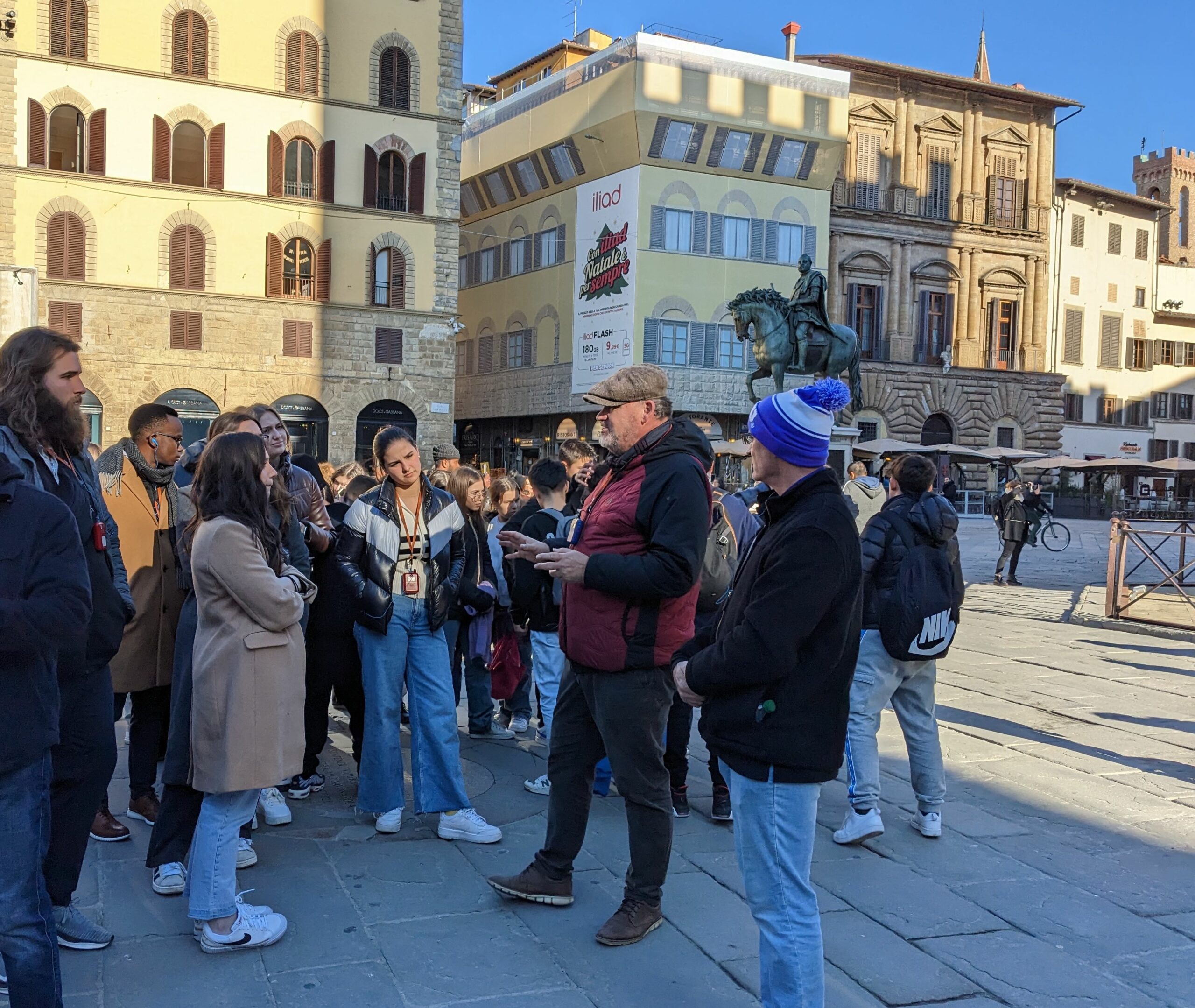Old Money: The History of Banking in Florence

Contemporary finance is an incredibly complex system, based on countless interactions taking place on a global scale. Still, many important features of modern-day banking date further back in time than we think, originating in the late Middle Ages. The history of financial institutions in Italy is the focus of the walking tour “Rise and Fall of the Medici Banking Empire”, by local faculty Clive Woollard, MBA.
Following Woollard through the streets of Florence, students learn about the founding of the first modern banks at the end of the fourteenth century and the historical role played by the Medici family. They explore the historical palazzi where the Medici conducted business and displayed their newly acquired wealth, and the streets that saw the political conflicts between them and their opponents. A specialist in the field of economics and an entrepreneur himself, Woollard uses his expertise to draw comparisons between the economy of Renaissance Florence and contemporary finance. The past becomes a helpful tool for students to think critically about corporate and financial strategies and the functioning of our own banking system.
Woollard’s walking tour was part of a week-long Italy Seminar within the BNSF Neeley Leadership Program at TCU. A three-year cohort-based program within the Neeley School of Business, the Program helps students develop into effective leaders through coursework and experiential learning opportunities. During their stay in Florence, students explore business in Tuscany by meeting with scholars and entrepreneurs, visiting local business, and participating in course-related activities.
One of these activities was a Leadership Skills workshop with Elena Piani, a consultant on corporate communication. Students explored transformational leadership and the importance of empathy and understanding in interpersonal and professional relationships. After breaking into teams, they then engaged with a scenario of workplace conflict, discussing potential solutions.
Throughout the program, topical visits, workshops, and on-site learning activities helped participants acquire an intercultural perspective on leadership and communication strategies. By visiting the very places where banks first developed in Europe, students also gained new insight into the long historical process that led to the creation of the modern financial systems that they study, taking another step in their path to become successful leaders.
Accent has extensive resources and experience in diverse customized business program models, including semester, quarter, and short-term programs, including programming designed for undergraduate, MBA, and Executive MBA cohorts.